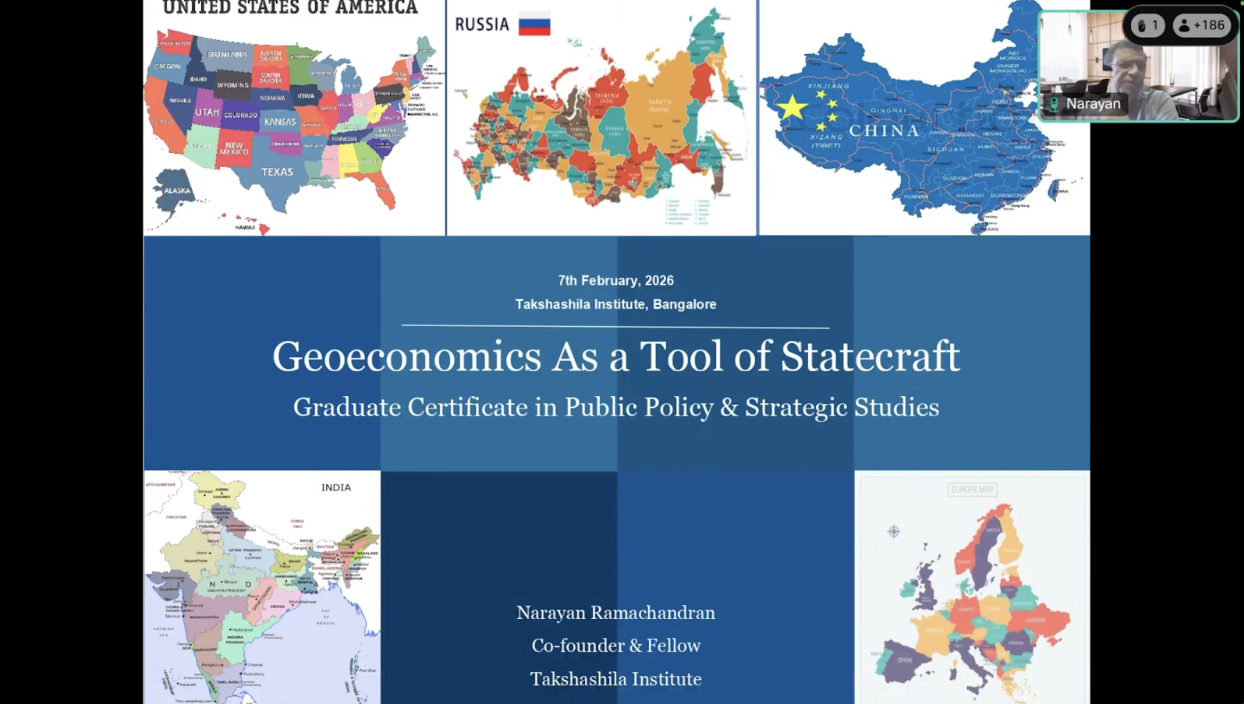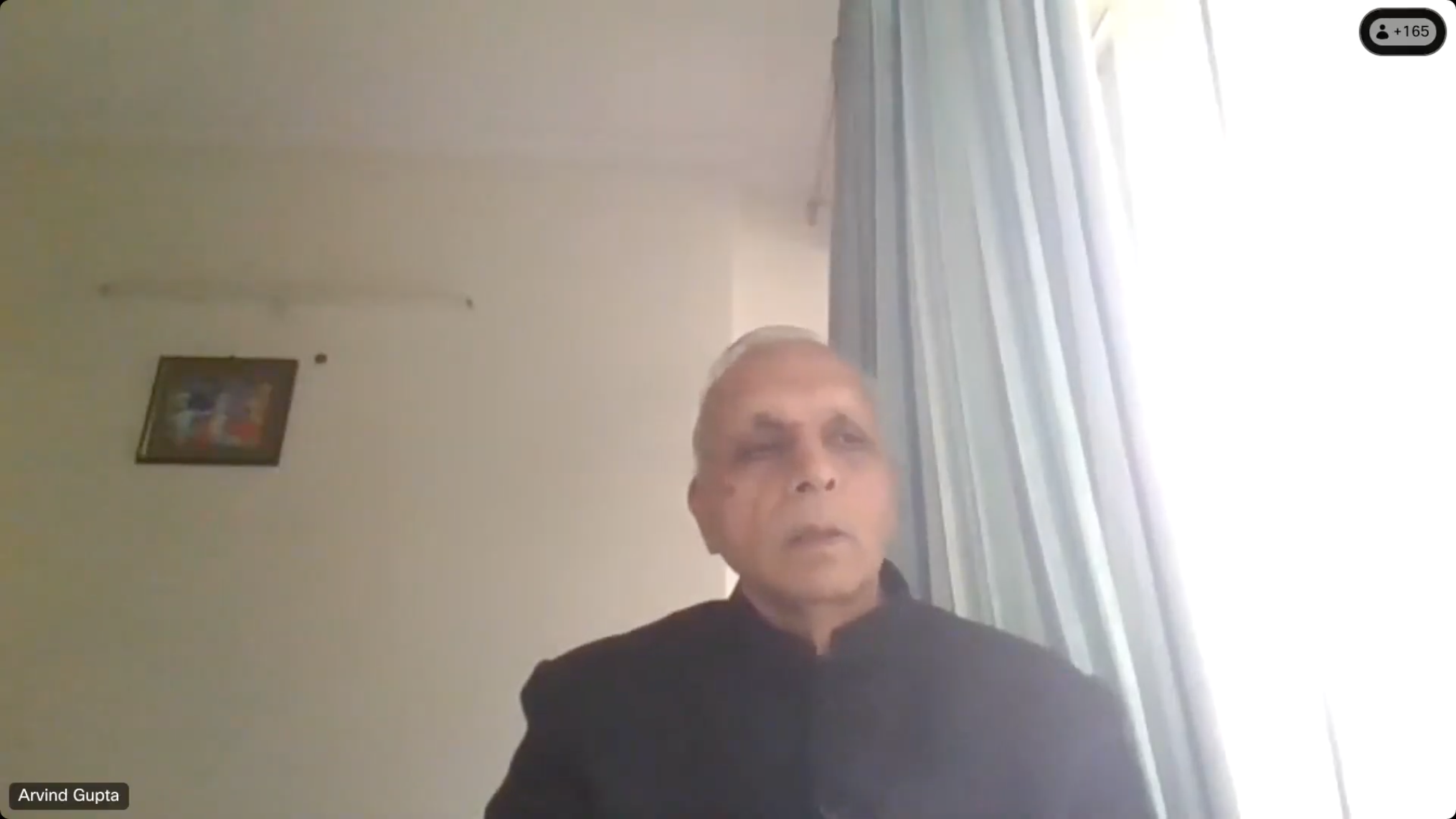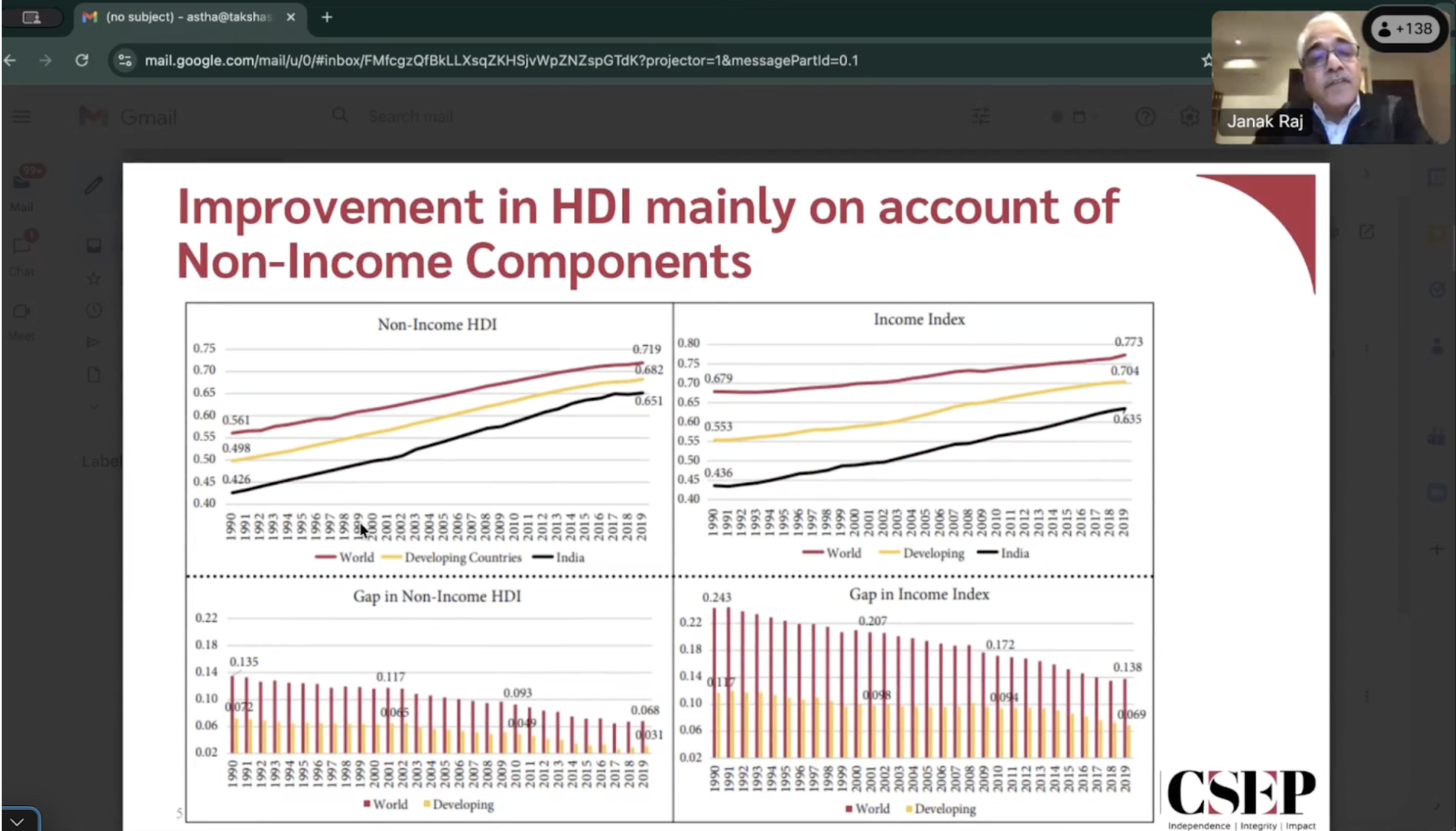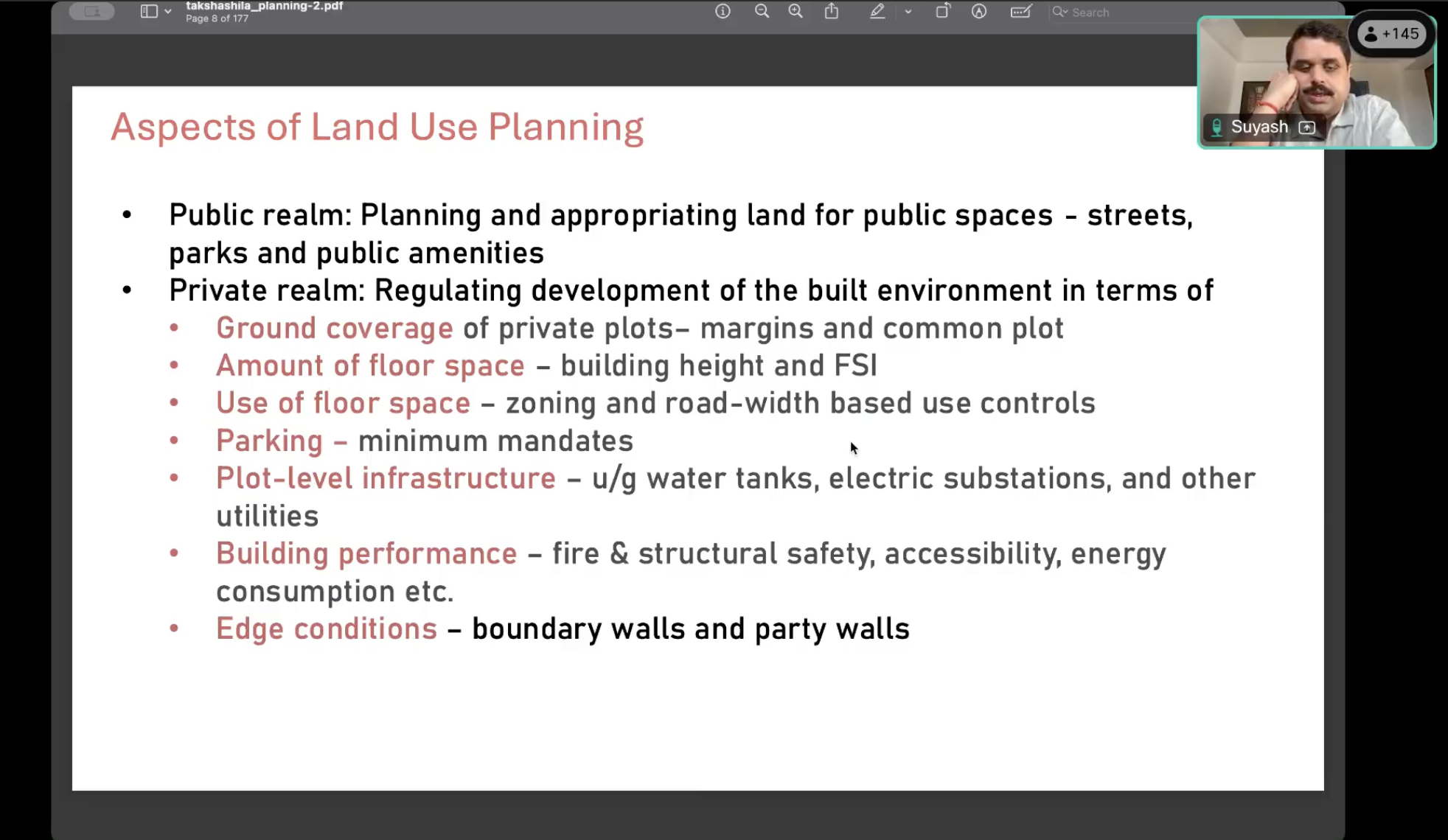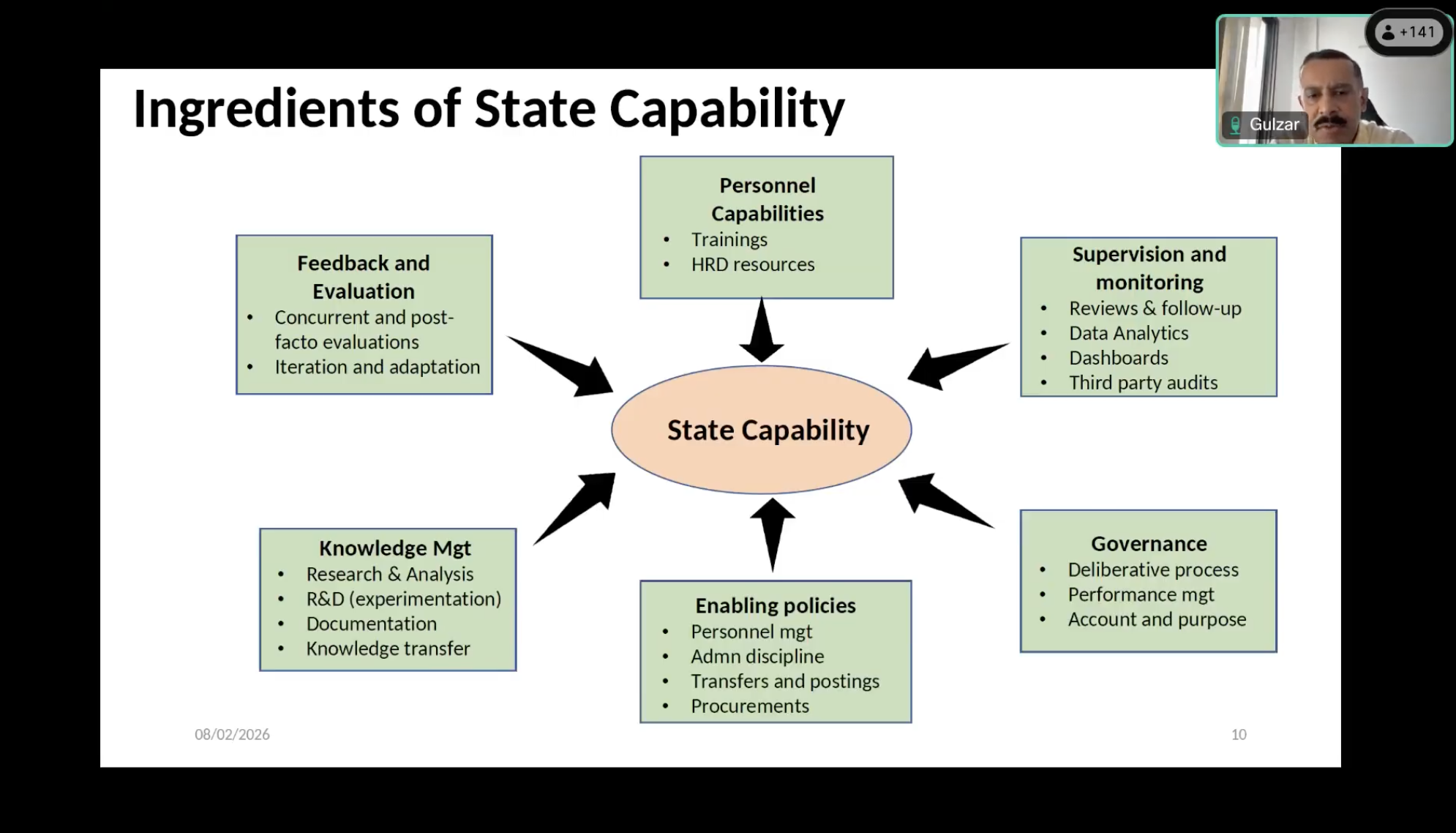GCPP Academic Conference — February 2026 Edition
The Academic Conference is one of the highlights of the GCPP course. This edition of the conference, held over February 7–8, convened more than 250 learners, faculty, and guest speakers for two days of learning, dialogue, and policy exploration.
Here are a few snippets from this event:
Day 1 opened with a keynote address by Narayan Ramachandran on Economic Statecraft in the Changing World Order. He examined how shifting geopolitics, trade realignments, and technology controls are reshaping global economic strategy and state capacity. The session set the tone for the conference by situating domestic policy choices within a rapidly evolving international economic landscape.
This was followed by a session on Pathways to Improving Foundational Learning in India by Wilima Wadhwa, which examined learning outcomes, system-level constraints, and the policy levers needed to strengthen foundational literacy and numeracy across states. In an Introduction to the Arthashastra, Dr. Kajari Kamal guided participants through this fascinating body of knowledge, unpacking its enduring insights on power, strategy, and governance.
Arvind Gupta spoke on India’s National Security: Challenges and Opportunities, examining how the current geopolitical landscape is shaped by shifting alignments, regional volatility, and emerging technological risks, and how these continue to influence India’s strategic choices and security priorities. He also reflected on India’s evolving approach to deterrence, technology, and partnerships, underscoring the importance of aligning diplomatic, economic, and defence capabilities to navigate an increasingly uncertain global environment.
Janak Raj closed Day 1 with the Human Development Convergence for States, highlighting disparities across states and the need for stronger state capacity, targeted spending, and data-driven policies to improve health, education, and livelihood outcomes.
Day 2 opened with Making Urban Planning Work in India by Suyash Rai, which turned the focus to the challenges of urban governance and planning in rapidly growing Indian cities. The session explored the institutional constraints, regulatory gaps, and coordination failures that shape urban outcomes, and reflected on what more effective planning and state capacity could mean for the future of India’s urban transformation.
Ashish Kulkarni spoke on the economics of innovation in these times and its role in shaping growth and development in the context of the current global order and trade challenges.
In the "Building State Capability from the Ground Up" session, Gulzar Natarajan reflected on what it takes to strengthen state capacity within real-world administrative systems. Drawing on his experience in government and the assigned reading he shared with participants, he discussed problem-driven approaches, bureaucratic incentives, and institutional learning as key to improving implementation and public service delivery.
Other sessions reflected the breadth of contemporary policy debates in India and beyond. These included Abhinandan Sekhri on The State of Indian Media, Arindam Goswami on Some Perspectives on the Efficacy of Technology Denial Regimes, and Swarnodeep Homroy on The Corporate Sector and Civil Society in Policy Making, each examining how institutions, incentives, and information flows shape public outcomes.
Participants also engaged with questions at the intersection of geopolitics, technology, and society. Shobhankita Reddy spoke on Unearthing the Geopolitics of Critical Minerals, Malathi Renati traced India’s Sports Policy Journey, and Adya Madhavan explored the ethical and strategic dilemmas surrounding Lethal Autonomous Weapons.
Economic and structural themes were taken up in sessions by Harsh Vardhan on Corporate Bond Markets, Ameya Naik on Demography and the Indian Economy, and Disha Verma on Human Labour in AI’s Shadow, which collectively examined finance, population shifts, and the future of work in an era of technological change.
Across both days, participants engaged with a wide spectrum of policy challenges—linking theory with practice and reflecting on how ideas, institutions, and leadership continue to shape India’s evolving policy landscape.


